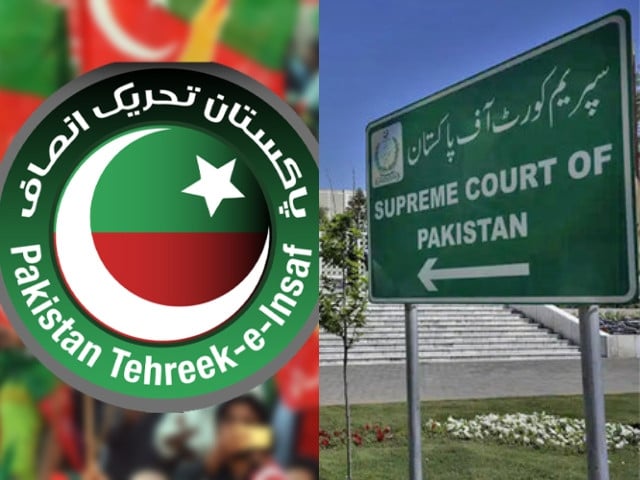Pakistan Tehreek-e-Insaf (PTI) has once again turned to the Supreme Court, filing a petition concerning the allocation of reserved seats. PTI’s lawyer, Uzair Bhandari, argues that the recent amendment to the Election Act does not impact the Supreme Court’s ruling from July 12, asserting that the Election Commission is obligated to implement that decision.
In its petition, PTI seeks a declaration from the court that the Speaker of the National Assembly’s letter regarding the July 12 decision is without legal merit. The party is requesting that the Election Commission disregard the Speaker’s letter and halt the allocation of reserved seats to other political parties.
This move follows a strong letter from Speaker Sardar Ayaz Sadiq to the Election Commission of Pakistan (ECP), urging respect for parliamentary sovereignty in the allocation of reserved seats to PTI. The Speaker’s letter comes in response to a Supreme Court ruling that permitted independent candidates to join political parties after elections, accompanied by a note from eight Supreme Court judges directing the ECP to act on the judgment promptly.
On July 12, the Supreme Court recognized PTI as a parliamentary party, affirming its eligibility for reserved seats previously distributed among other parties in national and provincial assemblies. However, the parliament subsequently passed the Elections (Second Amendment) Act, 2024, introducing new restrictions on party-switching by independent candidates, effectively overriding the Supreme Court’s decision.
In his letter, the Speaker pointed out that the recent amendment prohibits independent candidates from switching party affiliation after joining a political party. He emphasized the necessity of applying the new election law when the ECP allocates the contested seats, arguing that the Supreme Court’s judgment has been rendered obsolete by these legislative changes.
Ayaz Sadiq specifically referenced the July 12 Supreme Court ruling, which allowed independent candidates to change parties after aligning with one, and the new Elections (Second Amendment) Act, which now makes such party-switching irrevocable.
The letter highlighted Section 66 of the Amended Election Act, which requires candidates to declare their party affiliation during the election process. If this declaration is not made, the candidate is considered independent. Section 104-A states that any affiliation declared by an independent candidate to a political party is irrevocable.
### Background on the SIC Reserved Seats Case
The case involves the Sunni Ittehad Council’s (SIC) challenge to a Peshawar High Court (PHC) ruling that upheld the ECP’s denial of reserved seats for PTI-backed lawmakers. The issue arose after over 80 independent candidates, supported by PTI, won elections on February 8 and subsequently joined the SIC, seeking to claim reserved seats for minorities and women.
The ECP rejected their request, citing the SIC’s failure to submit a list of candidates. In response, the SIC appealed to the PHC, which upheld the ECP’s decision. Dissatisfied, the SIC escalated the matter to the Supreme Court, seeking to overturn the PHC ruling and secure 67 reserved seats for women and 11 for minorities.
The allocation of these reserved seats is vital as it significantly influences the opposition’s composition. PTI-backed SIC candidates lost 77 reserved seats in the National and provincial assemblies due to the PHC’s ruling, enabling the ruling coalition—comprising Pakistan Muslim League-Nawaz (PML-N), Pakistan Peoples Party (PPP), and allies—to gain a two-thirds majority in the National Assembly. Consequently, the PML-N’s seats increased to 123, while the PPP secured 73, leaving the SIC with 82 seats.



